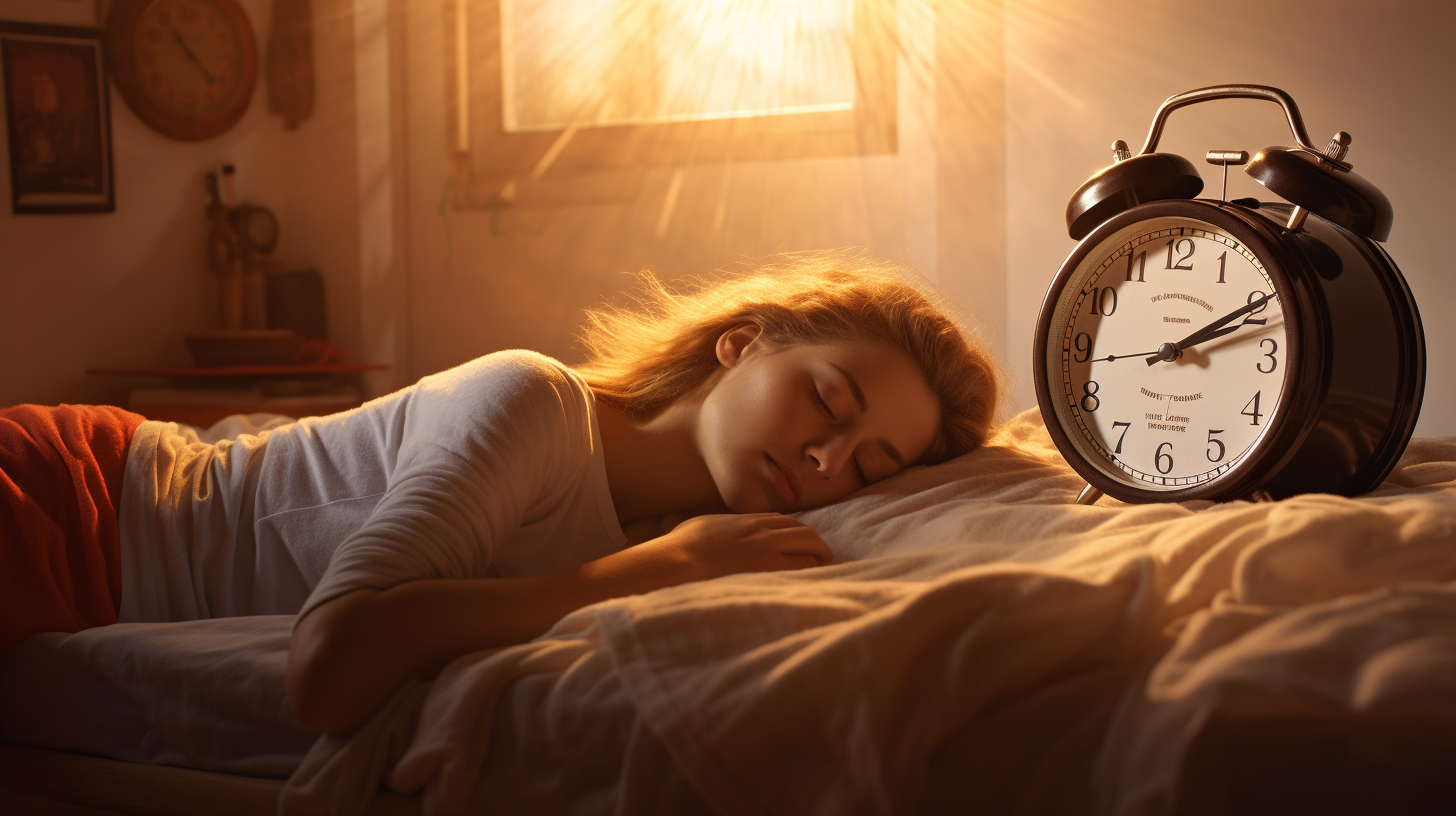You’re no stranger to daytime sleepiness, right? It’s that irresistible urge for a quick nap. But have you ever paused to ponder its effects?
Could these sneaky snoozes be hurting more than helping? Let’s dive into the science of daytime sleep, weigh its pros and cons, and unearth some expert tips to manage it better.
It’s time for you to understand your body’s signals and optimize your health.
What Is Excessive Daytime Sleepiness?
Understanding excessive daytime sleepiness involves recognizing its impact on your daily activities and its potential ties to underlying health issues. It’s defined as difficulty staying awake or alert, or having an increased desire to sleep during the day. The feelings of sleepiness may be stronger when you’re sedentary, such as while driving or sitting at work.
Although feeling sleepy occasionally after a short night of sleep is normal, repeated bouts of drowsiness are considered excessive daytime somnolence when this happens almost every day for at least three months. It’s easy to confuse sleepiness with fatigue, since both conditions are characterized by a lack of energy and may arise under similar circumstances, like being awake for extended periods. The main difference is that people with fatigue can remain awake despite feeling tired and sluggish.
The National Center for Biotechnology Information suggests that excessive daytime sleepiness affects up to 25% of the American population. Some research indicates that the prevalence of this condition has increased over time. However, the definition of excessive sleepiness can vary, affecting its estimated prevalence.
Consequences of Daytime Sleepiness
Your body’s response to excessive daytime sleepiness can have serious consequences. It’s not just about losing energy or feeling groggy. It’s also about the increased risk of car and work accidents, compromised work productivity, and a decrease in overall quality of life. Notably, daytime sleepiness can also lead to difficulties in regulating your mood and emotions, potentially causing social and relationship problems.
For certain groups like young adults, shift workers, medical staff, and long-distance drivers, daytime sleepiness can be particularly hazardous. However, it’s the long-term effects that are truly concerning. Chronic sleep deprivation has been linked to higher risks of developing serious health conditions like diabetes, obesity, and heart disease.
For children, excessive sleepiness can hinder their development. In contrast, older adults with daytime sleepiness face an increased risk of falls, cognitive impairment, memory loss, and even earlier mortality.
Causes of Excessive Sleepiness
You might be wondering what causes excessive sleepiness. It’s not just a lack of sleep that can lead to feeling tired all the time.
Various sleep-wake disorders and other health conditions can also contribute to this fatigue, making it crucial to understand the root causes to address the issue effectively.
Sleep-Wake Disorders
During the course of your day, you might experience excessive sleepiness due to sleep-wake disorders like obstructive sleep apnea, restless legs syndrome, or circadian rhythm disorders.
Conditions like obstructive sleep apnea cause fragmented sleep due to micro-awakenings, often unbeknownst to you until diagnosed by a sleep specialist. Restless legs syndrome too can interrupt your sleep, leading to daytime fatigue. Circadian rhythm disorders, on the other hand, disrupt the sync between your internal body clock and your daily schedule, causing insomnia and sleepiness.
There are also disorders like narcolepsy and idiopathic hypersomnia, which meddle with the neurological mechanisms and hormones that promote wakefulness, thus leading to daytime sleepiness.
It’s crucial to seek medical help if you consistently experience excessive sleepiness.
Other Health Conditions
Aside from sleep disorders, there are other health conditions that can cause you to feel excessively sleepy during the day, and it’s important to be aware of them.
Chronic medical conditions like depression, anxiety, lupus, Parkinson’s disease, multiple sclerosis, and obesity often come with daytime sleepiness.
Similarly, mental health disorders such as schizophrenia can also disrupt your sleep.
These health conditions and sleep problems often interact in a bidirectional manner, each exacerbating the other.
Some medications used for treating these conditions can also make you feel sleepy during the day.
Substance use, like alcohol or narcotics, can further contribute to this issue.
Research even suggests that your propensity for daytime sleepiness might have a genetic component.
Tips to Avoid Daytime Sleepiness
While it’s definitely a struggle to deal with daytime sleepiness, there are several strategies that can help you stay alert and avoid the urge to nap during the day.
Start by adjusting your diet. Consuming caffeine can keep you awake, but ensure to switch to decaf later in the day. Opt for low-sugar, high fiber snacks to maintain energy levels.
Short naps earlier in the day can also be beneficial, just remember to avoid napping close to bedtime. Regular physical activity promotes energy and better sleep at night, while a daily dose of sunlight exposure can improve your sleep quality.
Good sleep hygiene is key. This includes staying hydrated, refraining from excessive smoking and alcohol, maintaining a consistent sleep schedule, and creating a distraction-free sleep environment. Try limiting screen time and engage in stress-reducing activities to promote good sleep health.
If you’re feeling drowsy while working, try switching tasks or increasing light intensity. Deep breathing exercises can boost alertness and if you’re driving, remember to pull over if you feel sleepy.
Always prioritize nighttime sleep and seek medical help if daytime sleepiness becomes a persistent issue.
Conclusion
In conclusion, daytime sleep isn’t inherently bad. It can offer a quick energy boost, but excessive sleepiness could signal underlying health issues.
It’s essential to understand the cause of your daytime sleepiness and address it appropriately. Stay active, maintain a regular sleep schedule, and seek medical advice if needed.
Remember, your sleep health is crucial for your overall well-being. So, take steps to ensure it’s on the right track.
Frequently Asked Questions
Yes, certain medical conditions can cause increased need for daytime sleep. These include sleep apnea, narcolepsy, and restless legs syndrome. If you’re experiencing excessive daytime sleepiness, it’s important to consult a healthcare professional.
Quality nighttime sleep directly impacts your need for daytime sleep. If you’re getting deep, restful sleep at night, you’ll likely need less daytime sleep. Poor night sleep can increase your daytime sleepiness.
Yes, there’s a correlation. Consuming heavy, high-sugar, or large meals can lead to daytime sleepiness as your body uses energy for digestion. Opt for light, balanced meals to maintain energy levels throughout the day.
Yes, daytime sleep can influence your mental health and cognitive function. Regular, short naps can boost memory and creativity, but excessive daytime sleep might indicate sleep disorders, negatively affecting cognition and mental well-being.
Yes, certain demographics feel the need for daytime sleep more. Shift workers, elderly folks, teenagers, and pregnant women often require naps. It’s linked to work schedules, age-related changes, and hormonal shifts.

